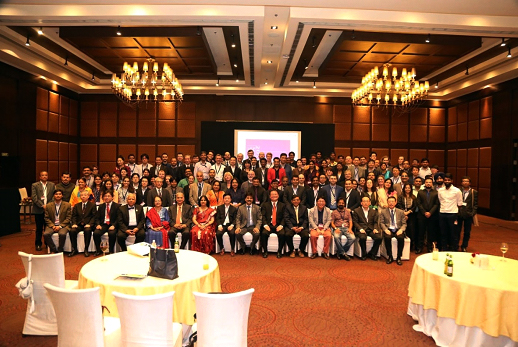Indo-German workshop was held along with the “International Workshop on Ecological Processes and New Technologies for Sustainable Development” from 21 – 25 February 2018 in Jaipur. This was the first workshop to be supported by IGSTC under the new “Open Workshop Call”. The coordinators for the workshop were Prof Sanjay Mathur, University of Cologne and Prof A. S. Khanna, IIT Bombay. The workshop was embedded within the two well-established events namely the 19th International Symposium on Eco-materials Processing and Design (ISEPD 2018) and Expo on Environment-friendly Surface Engineering Technologies (EXPO) - an industry exhibit on greener and eco-friendly processing and engineering technologies. With over 400 international participants of the ISEPD & EXPO, the bilateral Indo-German workshop maximized the synergy of discussions between partners from industry and academia. Within the overarching theme of “Material Technologies for Sustainable Development”, the Indo-German workshop established a novel platform integrating two of the most critical facets of materials science and engineering, namely materials innovation and sustainability manifested in the concepts of nanotechnology and ecological pathways towards materials development as well reduction of materials usage. This interdisciplinary Indo-German forum with selected international experts discussed the necessity to identify, develop, assess and integrate novel materials for sustainable energy solutions. A panel of internationally renowned scientists put forward their thoughts on forming new scientific alliances and cooperation among scientists from India, Germany and abroad to tackle the materials challenges for new technologies. Some of the topics discussed at the workshops were innovative materials synthesis procedures with ecological merit; Remediation of waste materials for energy applications; Cutting edge concepts for energy generation and storage; Heterogeneous catalysts for electrochemical processes; From black to green – towards optimal use of resources; Technology Readiness: the crucial role of cost-effectiveness and sustainability.
Director, IGSTC was the Guest of Honor at the opening ceremony of workshop and introduced IGSTC to the audience.

With over 200 international participants, the bilateral Indo-German workshop was optimally positioned to maximize the synergy of discussions between partners from industry and academia. The active involvement of major German institutions (Fraunhofer Institute for Ceramic Technologies and Systems, IKTS, Dresden; Helmholtz Zentrum Berlin; Technical University Darmstadt; Max-Planck Institute Erlangen, Karlsruhe Institute of Technology, Carl Zeiss AG, Germany, INMATEC Technologies GmbH, Germany, Materials Alliance Cologne GmbH and University of Cologne) and Indian partners (Indian Institute of Technology, Bombay; Indian Institute of Science, Bangalore, Indian Institute of Technology, Delhi, Malviya National Institute of Technology, Jaipur, Manipal University, Jaipur, Indian Association for Cultivation of Science, Dayalbagh Educational Institute, Agra; Indian Institute of Technology, Banaras; Indian Institute of Technology Jodhpur) guaranteed the alignment of this event along the mission of IGSTC and the expected outcome is expected to foster the bilateral ties at various levels.